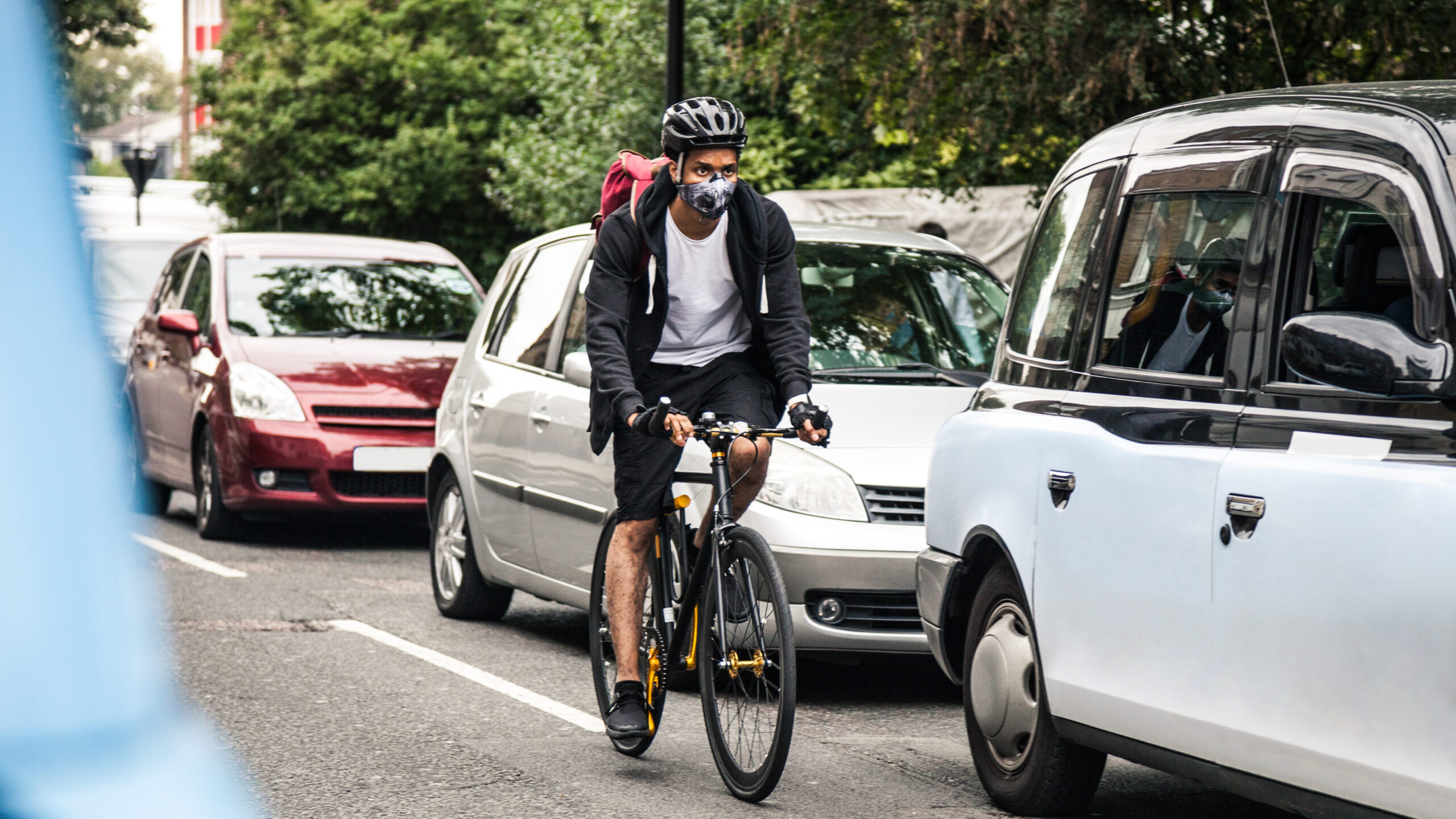Poor air quality and pollution

Air quality is the term we use to describe how polluted the air we breathe is. When air quality is poor, pollutants in the air may be hazardous to people.
Although air quality has improved a lot in recent decades, poor air quality is one of the greatest environmental risks to public health in the UK. In addition to contributing to climate change, short-term exposure to high levels of air pollution can also have negative impacts on health including effects on lung function, worsening of asthma and increases in hospital admissions related to heart and lung conditions. Long-term exposure to air pollution has been linked to the development of chronic conditions (such as heart and lung conditions) in addition to lung cancer, diabetes and reduced cognitive performance.
The government provides UK Air Pollution Forecasts for up to 5 days ahead. These forecasts are based on readings across the UK. Air pollution is described on a scale of 1-10, where 1 corresponds to ‘low’ pollution and 10 corresponds to ‘very high pollution’. These scores relate to recommended actions and health advice to be taken dependent on the highest forecast level of pollution.
Who is most at risk?
Poor air quality can affect anyone, but some people may face a higher risk of encountering or being impacted by pollution. Some of the groups who may be most at risk are:
- People who live in areas of higher pollution.
- People with existing heart or lung conditions (such as asthma).
- Pregnant people.
- Babies and children.
- Older adults.
Actions you can take during episodes of high air pollution to keep yourself safe
- Use the UK Air Pollution Forecast to get updates on air pollution in your area. Or you can call 0800 556677 for free updates on air quality in your area.
- Using the highest forecast level of pollution for the day in your area, ensure that you are following the recommended actions and health advice for your personal circumstances:
- At moderate levels of pollution, adults and children with lung problems and adults with heart problems who experience symptoms should consider reducing demanding physical activity (particularly outdoors).
- At high levels of pollution, adults and children with lung problems and older adults should reduce demanding physical activity (particularly outdoors). People with asthma need to ensure that they follow their Asthma Action Plan (if they have one), take their preventer inhaler or controller medications every day as prescribed and take their reliever inhaler if symptoms occur. Anyone who experiences discomfort (e.g., sore eyes/cough) should consider reducing activity (particularly outdoors).
- At very high levels of pollution, adults and children with lung problems, adults with heart problems and older adults should avoid demanding physical activity. People with asthma need to ensure that they follow their Asthma Action Plan (if they have one), take their preventer inhaler or controller medications every day as prescribed and take their reliever inhaler if symptoms occur. Anyone experiencing discomfort should reduce physical exertion (particularly outdoors).
- Ensure that family, friends and neighbours who may be at higher risk of the effects of air pollution are aware of, and following, actions to keep themselves safe.
Further information and resources
Read further information on the health impacts of air pollution across a person’s lifetime.
The Met Office provides guidance on how to use the daily air quality index.
For people in Wales, you can read more about Air Quality In Wales.